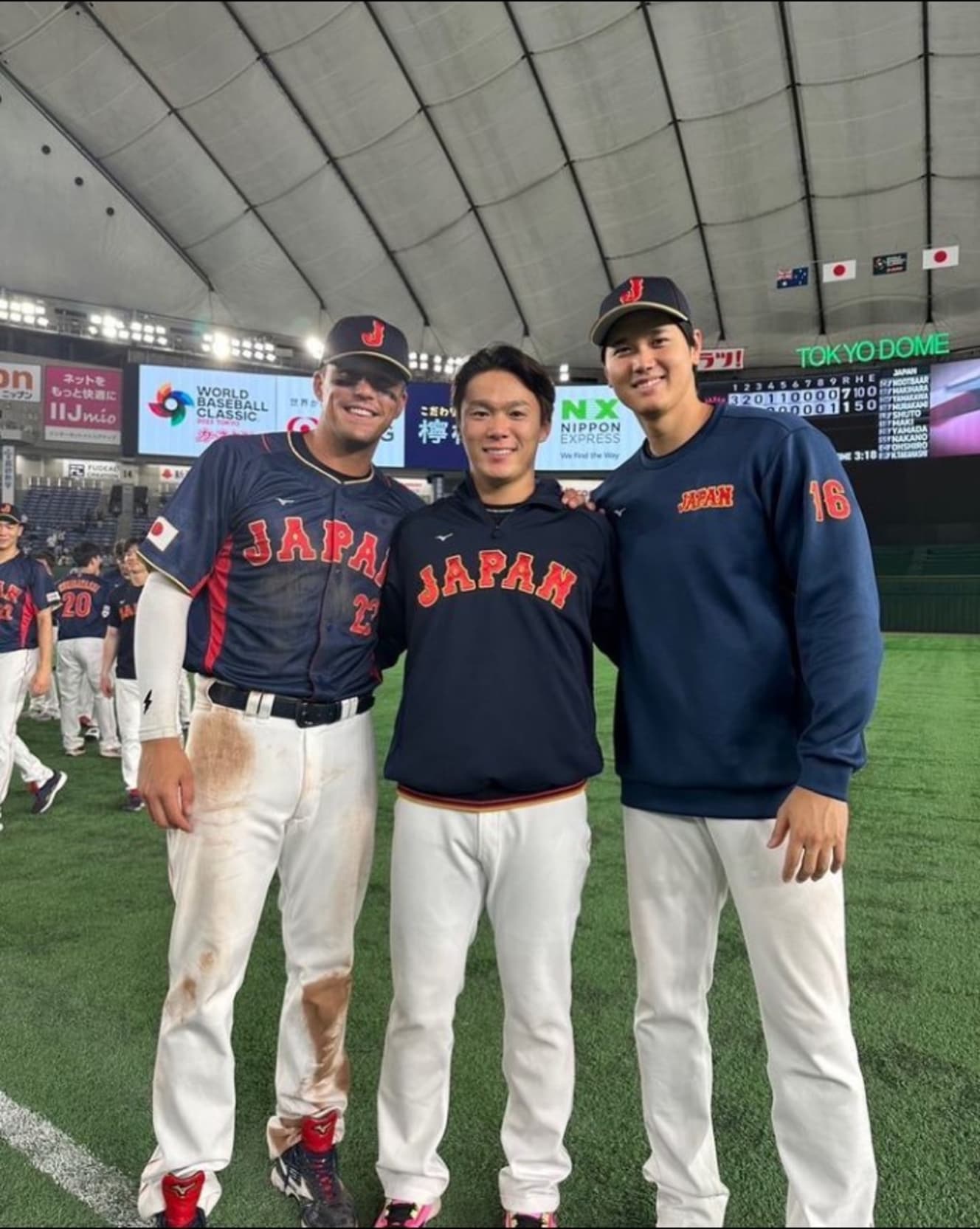Two commercial debuts in Japan! Unknown Images” Show Nutobar’s Favorability
On May 4, he was defeated by pitcher Shohei Ohtani in the "Samurai Showdown," striking out three batters in a row. ......

Lars Nutobar, who played the No. 1 role for Samurai Japan in the World Baseball Classic (WBC) in March and contributed to the team’s first world championship in 14 years, began airing commercials for the eyeglass brand “Zoff” on April 27 and for Morinaga Seika’s protein bar “in BAR” on April 28.
In the “Zoff” commercial, Lars co-stars with his mother Kumiko, and in the “Morinaga Seika” commercial, Lars Nutobar appears from inside a package in a comical move that has become a topic of conversation.
There are many positive comments on social networking sites.
<It is rare to find a person with such human charm.
<“Seeing Nutobar makes me feel cheerful and gives me a good image of him.
Nutobar, who qualified for the national team because his mother was Japanese, had no contact with a Japanese professional baseball team before joining the national team. He tried to fit in with the team with his natural cheerfulness, and saved the team from many a pinch with his fighting spirit on the field.
There is another image that enhances Nutobar’s likability. He has been donating to EL SEGUNDBASEBALL, the little league he was a member of as a boy, and Nutobar was named as a sponsor for the ’23 season even before he became a member of the winning team at the WBC.
In the list of sponsors in the image, except for Nutobar, most of the names are companies or organizations such as baseball equipment, restaurants, and organizations that donate to children. At the end of the page, it says <He continues to be an inspiration to young athletes. We are grateful for his philanthropic activities for youth sports.
A reporter who has covered Major League Baseball in the United States revealed, “He is the only American Major League Baseball player who has donated money to charity.
In the U.S., players who donate money are often those who have achieved success and become eligible for FA (free agent) status and make social contributions for their hometowns, which is also reported in the media. In Japan, there are articles about top draft picks donating baseball equipment to their alma maters, but in the U.S., for example, college graduates who are drafted high often pay back their scholarship to the university they attended, and this does not lead to activities such as donations. Therefore, we don’t hear much about philanthropic activities by players like Nutever, who is in his second year in the majors and has yet to achieve much in the way of accomplishments.
In order to become an MLB FA, a player must have been registered in the Majors for 172 days in a year, and that season must have accumulated over a total of six years. A player with that kind of track record can earn a higher annual salary, and the financial leeway he enjoys gives him the mental capacity to think about how he can contribute not only to himself but to society as a whole.

MLB has an award called the Roberto Clemente Award, which is given to a Major League Baseball player who is a man of character and enthusiastic about philanthropic activities. The above-mentioned reporter continues, “For example, he received the award in 2009.
For example, the winner of the Roberto Clemente Award in 2009 was Nelson Cruz, an outfielder who represented the Dominican Republic in the WBC and is currently playing for the Padres. He, too, was recognized for his continued contributions to society for his native Dominica from a young age.
This year at age 42, Cruz has a one-year contract with the Padres with an annual salary of $1 million (¥135 million), but Cruz, who has hit a total of more than 450 home runs, was signed by the Nationals last season at age 41 with an annual salary of ¥1.7 billion.
Compared to that, charitable activities by a player like Nutobar, whose annual salary this season is around 100 million yen, are a rare case in terms of annual salary. For example, Kondo (Softbank), who was a member of the Samurai Japan team, was paid an estimated 700 million yen, Murakami 600 million yen, and Yamada 500 million yen (both from Yakult), so their salaries are much lower than that. Although this may not be a large sum of money paid to Little League, in Nutobar’s case, it was purely his gratitude to the Little League that raised him that motivated him to act in this way, and I think it is a testament to his character.
In March, just before the start of the WBC, Nutobar’s mother, Kumiko, told Chunichi Sports in an interview, “I was very strict with Nutobar’s discipline. She also made sure that he was punctual, got along with his friends, greeted people properly, and so on. Nutobar was raised by a Japanese mother who showed her gratitude with gifts at every milestone, so perhaps supporting the youth baseball team he grew up with is a natural thing for him to do.
On May 4, Nutobar lost his second game in a row, striking out three in a row, but even before the game, many on the Internet were eagerly awaiting a head-to-head matchup between the two. More than a month and a half after the WBC victory, Nute bar’s popularity in Japan has not waned.
